Are you tired of using makeup to cover up dark spots on your face? Do you want to learn how to hide them without relying on cosmetics? Dark spots, also known as hyperpigmentation, can be caused by a variety of factors, including sun damage, aging, and hormonal changes.
While makeup can provide temporary coverage, it's not a long-term solution.
Fortunately, there are natural remedies and lifestyle changes that can help fade dark spots and even prevent them from forming in the first place.
In this article, we'll explore some effective ways to hide dark spots on your face without relying on makeup.
Understanding Dark Spots
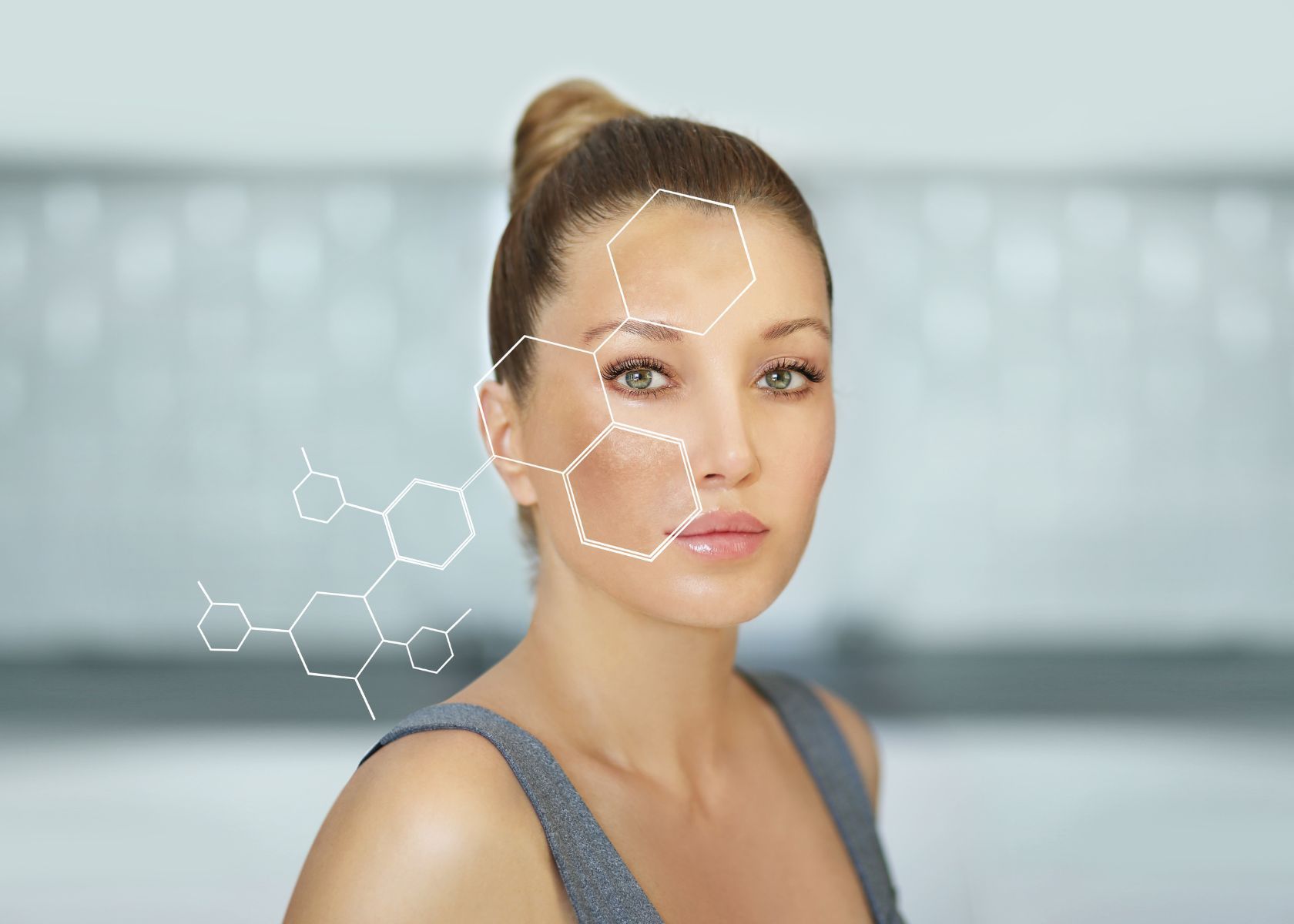
Dark spots, or hyperpigmentation, can appear on our skin due to various factors.
The good news is that there are ways to make those dark spots fade away. Let's look at some of the causes of dark spots and how you can start getting rid of them today.
What Causes Dark Spots?
There are many possible causes for the appearance of dark spots on our skin. Sun exposure is the biggest culprit for causing age spots, freckles, and other forms of hyperpigmentation.
Uneven skin tone can also be caused by hormones—such as in pregnancy or menopause—or due to medications like birth control pills. Other common triggers include acne scars, inflammation from rashes or eczema, and even genetics.
Treating Dark Spots
The most important step in treating any kind of skin discoloration is sun protection. A broad-spectrum sunscreen with an SPF of 30 or higher should be applied every day (yes, even if it’s overcast outside).
Additionally, products containing ingredients such as Vitamin C, retinoids, and glycolic acid can help reduce the appearance of dark patches by reducing melanin production.
For more stubborn cases, laser treatments may be necessary to completely remove them. Your dermatologist will be able to advise you on which treatment is best for your particular case.
Dark Spots Vs. Acne Scars
It’s important to differentiate between dark spots and acne scars. Dark spots are caused by excess melanin production, while acne scars are caused by the inflammation of pimples on the skin. The acne scarring process is completely different and results in acne patches.
Treatment for these two types of discoloration requires different approaches.
Acne scars should be treated with products containing salicylic acid or benzoyl peroxide, while dark spots can be treated with products containing Vitamin C, retinoids, and glycolic acid.
Dark Spots Vs. Melasma
Dark spots and melasma both cause discoloration on the skin. Dark spots are caused by too much melanin, while melasma is caused by hormones.
To get rid of dark spots, you can use products with Vitamin C, retinoids, lactic acid, or glycolic acid. To get rid of melasma, you need to treat the underlying hormone issue.
Speak to your doctor or dermatologist if you suspect that melasma is the cause of your discoloration.
How to Hide Dark Spots on Your Face without Makeup?
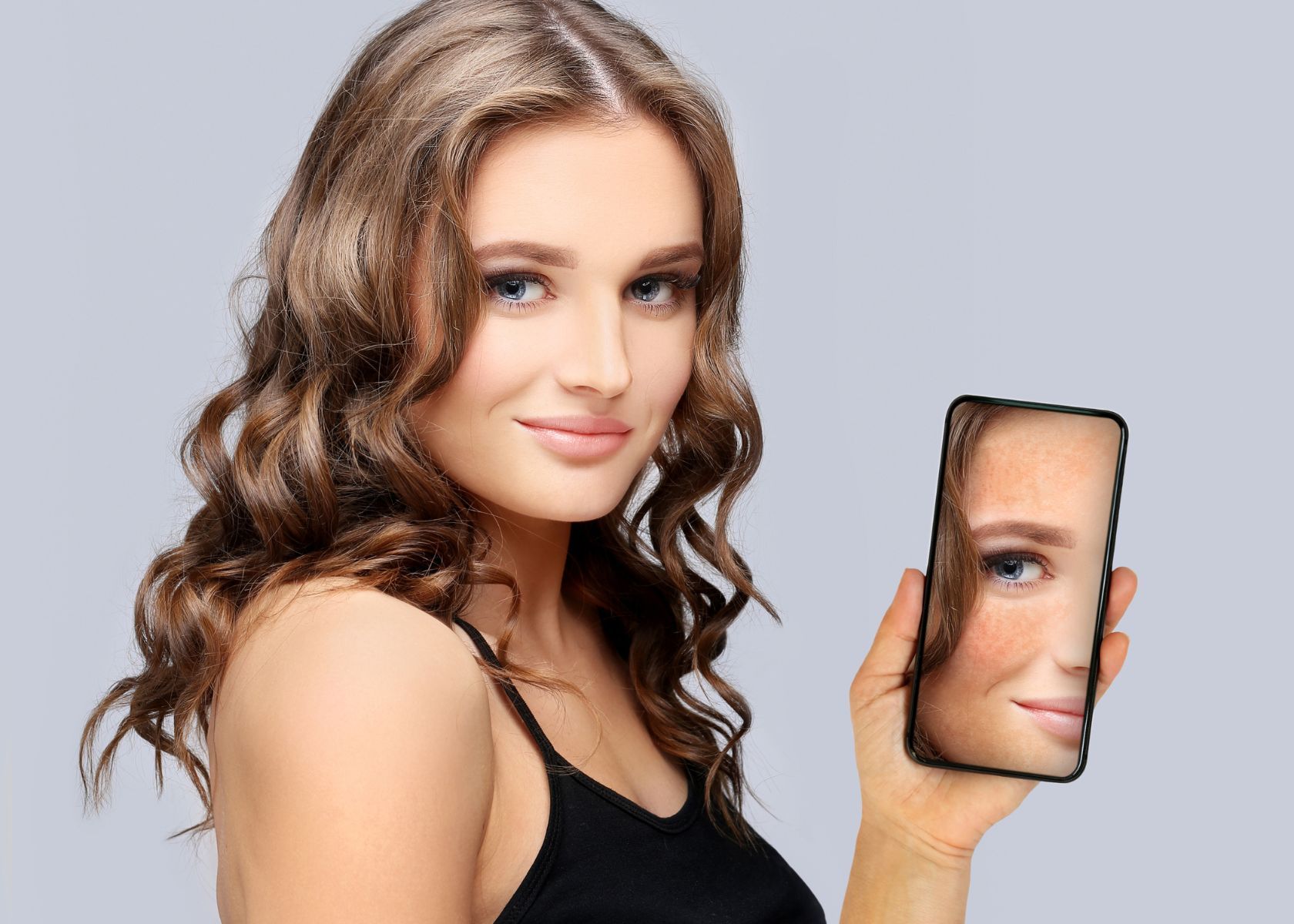
Dark spots on the face can be caused by a variety of factors, including sun damage, aging, and acne scars.
While makeup can help to conceal these spots temporarily, it is not always feasible or desirable to wear makeup all the time.
Fortunately, there are several natural remedies that you can use to reduce the appearance of dark spots on your face.
Step 1: Protect Your Skin from Sun Damage
One of the main causes of dark spots on the face is sun damage. To prevent further damage and reduce the appearance of existing dark spots, it is essential to protect your oily skin from the sun's harmful UV rays.
You can do this by wearing broad-spectrum sunscreen with an SPF of at least 30 every day, even when it's cloudy outside.
If you are not sure which sunscreen to use, we recommend you try this one. We have picked it from the best sunscreens available on Amazon.
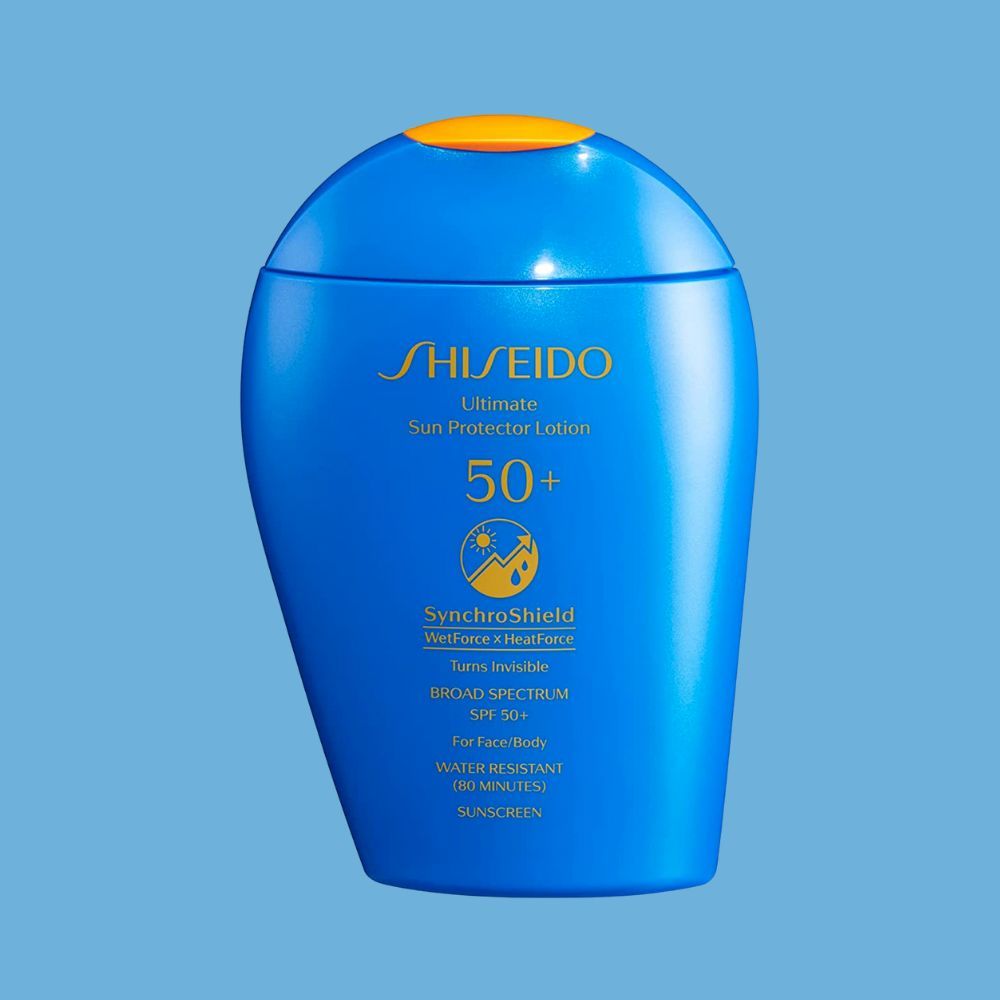
Shiseido Ultimate Sun Protector Lotion
With the Shiseido Ultimate Sun Protector Lotion, you expect more from your sunscreen. This luxurious cream has a high-performance protective veil that is strengthened further when exposed to water, sweat, and heat. It has SynchroShield technology that gives you continuous strong coverage even with days in the sun, yet it is comfortable enough for everyday use. The lightweight formula hydrates skin without making it greasy and is free of oxybenzone and octinoxate as well as compliant with Hawaii regulations. This ocean-friendly sunscreen is suitable for all skin types and safe even for sensitive eyes, having been tested by both ophthalmologists and dermatologists. And its water- and sweat-resistant formula keeps it going up to 80 minutes which makes it the perfect choice for days out in the sun.
Step 2: Exfoliate Regularly
Exfoliating your skin regularly helps to remove dead skin cells and promote cell turnover, which can help to reduce the appearance of dark spots over time.
Use a gentle exfoliator once or twice a week to avoid irritating your skin. You can try our recommended exfoliator, specifically picked for your dark spots.
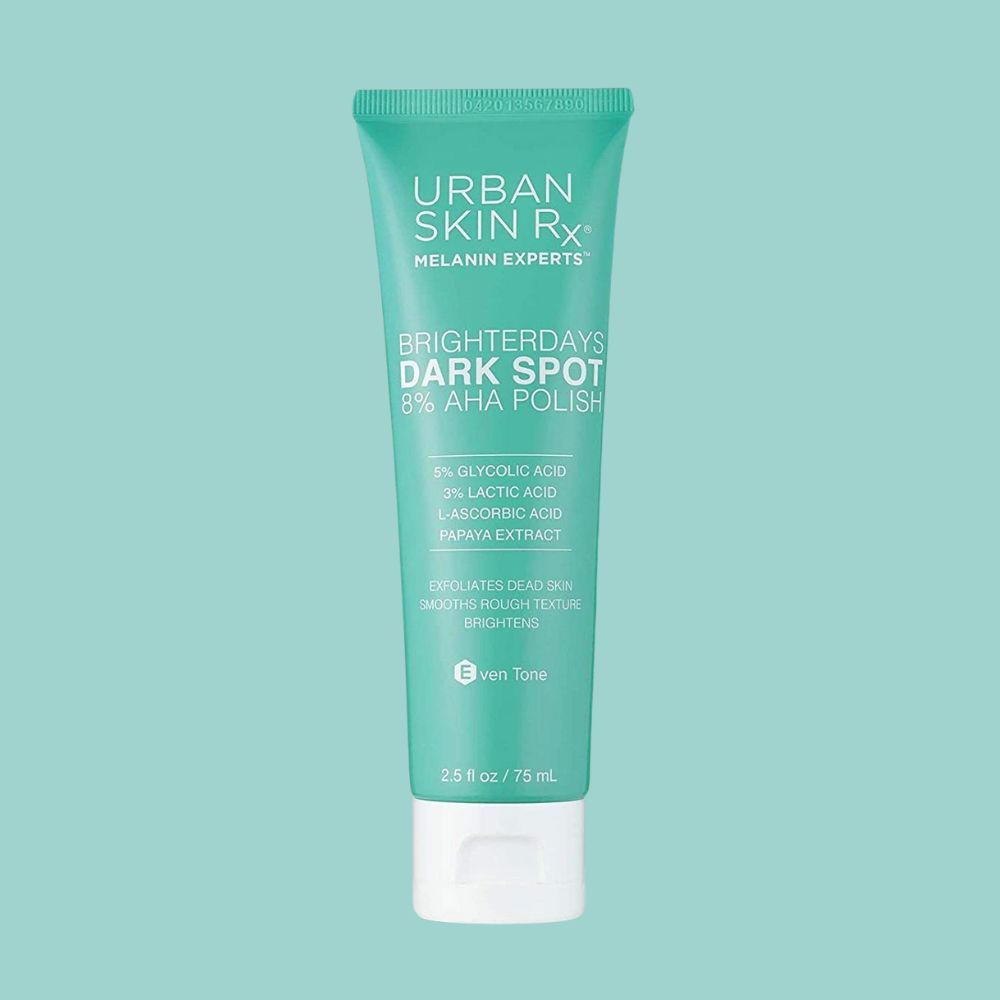
Urban Skin Rx Facial Scrub
Say goodbye to uneven skin tone and hello to brighter, smoother skin with Urban Skin Rx's BrighterDays Dark Spot 8% AHA Polish. Whether you're looking to erase the effects of aging, reduce the appearance of dry skin or simply give your complexion a pick-me-up, this versatile treatment mask is here to help. Formulated with ClearTone Advanced Technology, a powerful blend of Alpha Hydroxy Acids, and brightening ingredients, this cleansing facial scrub will make you fall in love with your skin all over again. Light yellow in color with orange beads and smelling delightful of sweet papaya, its exfoliating and smoothing power will help keep your skin healthy and glowing.
Step 3: Apply Lemon Juice
Lemon juice contains natural bleaching agents that can help lighten dark spots on your face.
Simply apply fresh lemon juice directly onto your dark spots using a cotton ball and leave it on for about 10 minutes before rinsing off with warm water.
Be sure to avoid sun exposure after applying lemon juice, as it can increase sensitivity to UV rays.
Step 4: Try Aloe Vera Gel
Aloe vera gel has anti-inflammatory properties that can help soothe and heal damaged skin while also reducing the appearance of dark spots.
Apply a small amount of fresh aloe vera gel onto your dark spots and leave it on overnight before rinsing off in the morning.
You can also try our recommended aloe vera gel for your dark spots.
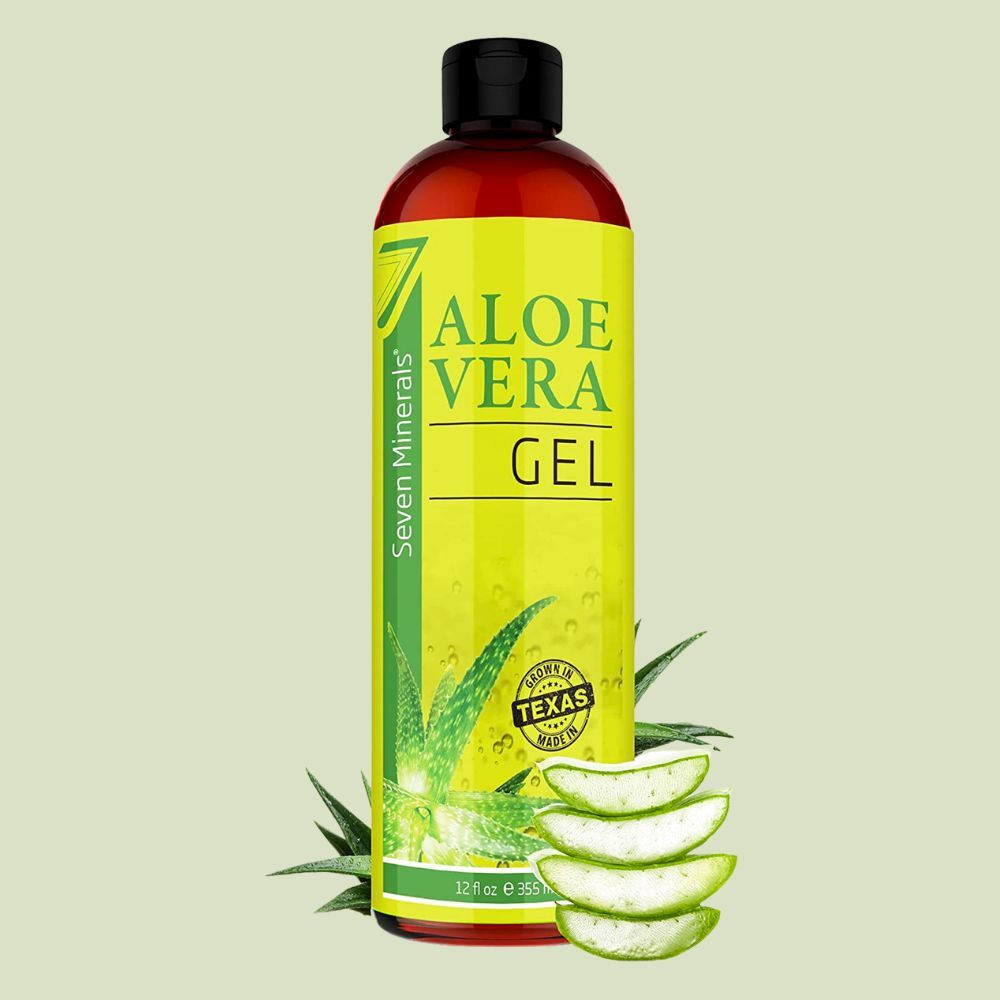
Seven Minerals Organic Aloe Vera Gel
If you're looking for an amazing all-natural aloe vera gel, then look no further than Seven Minerals. Not only is it grown in sunny southern Texas and certified by NSF Organic and IASC, but it's also harvested from real freshly cut aloe leaves instead of using powder. This means that the quality is unbeatable -it's one of the purest and strongest gels on the market. Even better yet, we've used only 100% natural thickener seaweed extract so that our aloe gel absorbs rapidly with no sticky residue. Thanks to this wonderful product, you'll definitely notice a difference in your skin after use - it'll be left feeling smooth and silky. Use it to take the sting out of bites or calm down any burning sensations after shaving. Discover nature's miracle plant and make Seven Minerals Aloe Gel part of your daily routine.
Step 5: Use Vitamin C Serum
Vitamin C is known for its ability to brighten and even out skin tone. Look for a high-quality vitamin C serum and apply it daily after cleansing your face.
Over time, this will help reduce the appearance of dark spots while also improving overall skin texture.
Try this vitamin C serum that we carefully picked for your sensitive skin.
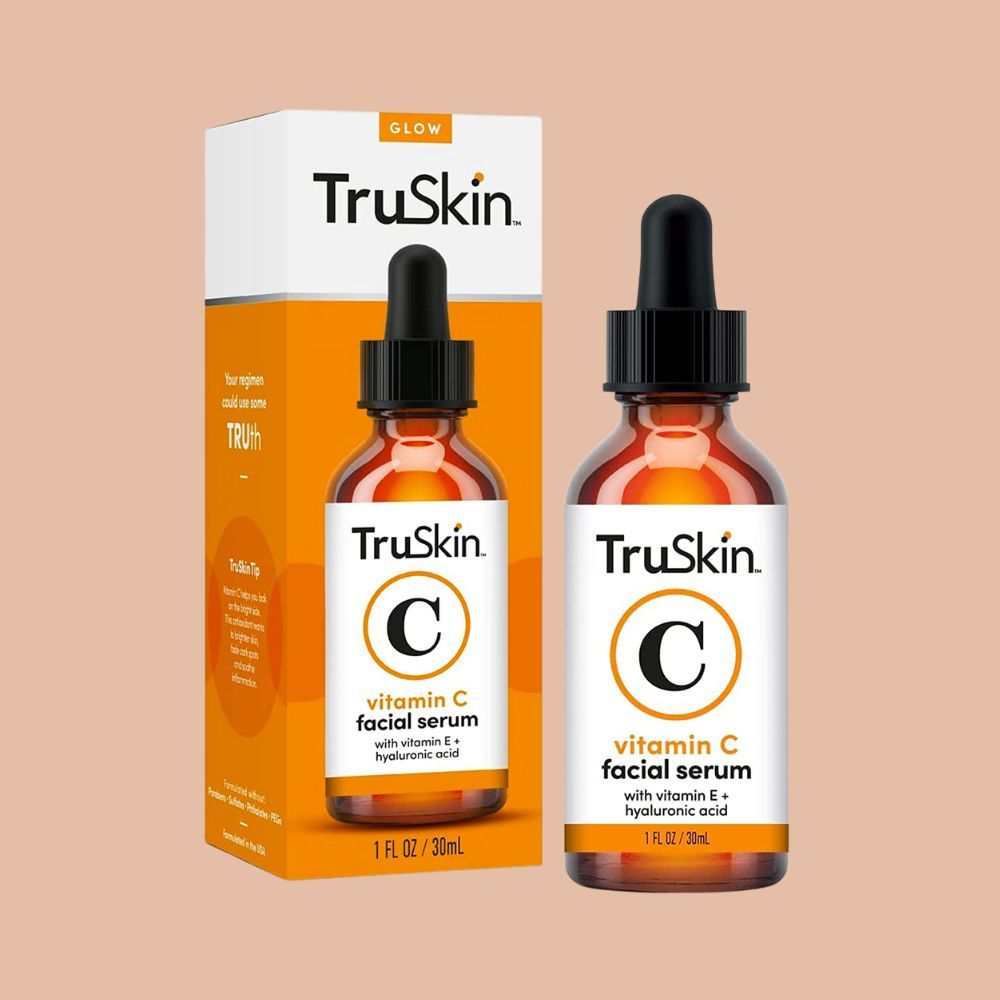
TruSkin Naturals Vitamin C Serum
The TruSkin Naturals Vitamin C Serum promises to deliver brighter, younger-looking skin with its nutrient-rich, botanically-based, and free from harmful chemicals. This popular serum encourages collagen production, and it leverages the combined power of vitamin C, hyaluronic acid, vitamin E, aloe vera, jojoba oil, and MSM for an extra dose of nourishment. Skin will be better defended against free radicals, and dark spots will be reduced over time, allowing you to enjoy a healthier complexion all year round. From dark circles and wrinkles around the eyes area to dull skin along the cheeks - this formula addresses all those concerns without any irritation! Just apply a few drops twice daily onto your face or neck, and in the morning, use it as part of your sunscreen routine to really help protect your skin.
Step 6: Apply Turmeric Paste
Turmeric contains antioxidants that can help protect against free radical damage while also reducing inflammation in the skin.
Mix turmeric powder with honey or milk to form a paste and apply it directly onto your dark spots for about 15 minutes before rinsing off with warm water.
Step 7: Stay Consistent
While these natural remedies may take some time before you see results, consistency is key. Stick with your chosen remedy for at least four weeks before deciding if it's working for you or not.
How to Hide Dark Spots on Your Face without Makeup - FAQs
Dark spots on the face can be caused by a variety of factors, such as sun damage, hormonal changes, acne scars, or aging.
While makeup can help conceal these spots, it's not always practical or desirable.
Fortunately, there are several ways to hide dark spots without using makeup.
Here are some frequently asked questions about hiding dark spots on your face:
What is the best way to prevent dark spots from appearing?
The best way to prevent dark spots from appearing is to protect your skin from the sun. Sun exposure is a major cause of dark spots, and wearing sunscreen every day can help prevent them from forming.
You should also avoid spending too much time in the sun, especially during peak hours when the sun's rays are strongest.
Additionally, you can incorporate products with vitamin C or retinoids into your skincare routine.
These ingredients can help brighten and even out your skin tone over time, reducing the appearance of dark spots.
Can drinking water help reduce dark spots?
While drinking water is essential for overall skin health, it may not directly reduce the appearance of dark spots.
Dark spots are typically caused by overactive melanocytes, which produce excess pigment in certain areas of the skin.
While staying hydrated can help keep your skin healthy and prevent dryness, it won't necessarily affect melanin production.
However, drinking plenty of water can help flush toxins from your body and improve circulation, which may indirectly benefit your skin's appearance.
To specifically target dark spots, it's best to use topical treatments or consult a dermatologist for more advanced options.
How does exfoliating help with dark spots?
Exfoliating can help with dark spots by removing dead skin cells that may be contributing to their formation.
Dead skin cells can clog pores and trap excess pigment, leading to hyperpigmentation and the development of dark spots. By using an exfoliating scrub or chemical exfoliant, you can slough off these dead skin cells and reveal brighter, more even-toned skin.
Additionally, regular exfoliation can help improve the effectiveness of other skincare products by allowing them to penetrate deeper into the skin.
However, it's important not to over-exfoliate, as this can damage your skin's natural barrier and lead to further irritation and inflammation.
What natural ingredients can help fade dark spots?
Several natural ingredients may help fade dark spots over time. One of the most well-known is vitamin C, a potent antioxidant that can help brighten and even out skin tone.
Other popular options include kojic acid, licorice root extract, and niacinamide, all of which have been shown to inhibit melanin production and improve hyperpigmentation.
Some people also use natural remedies like lemon juice or apple cider vinegar, but these can be harsh on the skin and should be used with caution.
When using natural ingredients to treat dark spots, it's important to be patient, as results may take several weeks or even months to become noticeable.
Can laser treatment or chemical peels get rid of dark spots completely?
Laser treatment and chemical peels can be effective in reducing the appearance of dark spots, but it's unlikely that they will completely eliminate them.
Both treatments work by removing the outer layer of skin to reveal fresher, more even-toned skin underneath.
However, dark spots may be caused by deeper underlying issues, such as hormonal imbalances or sun damage, that cannot be fully addressed with surface-level treatments.
Additionally, there is always a risk of side effects with any type of cosmetic procedure, so it's important to discuss your options with a qualified dermatologist and weigh the potential risks and benefits before proceeding.
Is it safe to use hydroquinone for fading dark spots?
Hydroquinone is a common ingredient found in many skin-lightening products and has been shown to be effective in fading dark spots.
However, there are some concerns about its safety. In high doses or with prolonged use, hydroquinone may cause skin irritation, redness, and even permanent discoloration.
In rare cases, it can also cause a condition called ochronosis, which leads to blue-black pigmentation of the skin.
As such, it's important to use hydroquinone only under the guidance of a qualified dermatologist and follow their instructions carefully.
Alternatives like natural remedies or other skin care ingredients may be safer options for those with sensitive skin or concerns about long-term effects.
Conclusion
Dark spots on the face can be a source of frustration and self-consciousness for many people.
While makeup is often used to conceal them, there are other ways to hide dark spots without relying on cosmetics.
Some effective methods include using sunscreen to prevent further damage, exfoliating regularly to remove dead skin cells, and applying vitamin C serum or retinoids to help fade dark spots over time.
Additionally, some lifestyle changes like quitting smoking and reducing stress levels may also improve skin health and reduce the appearance of dark spots.
Enjoy exploring our world of beauty!



